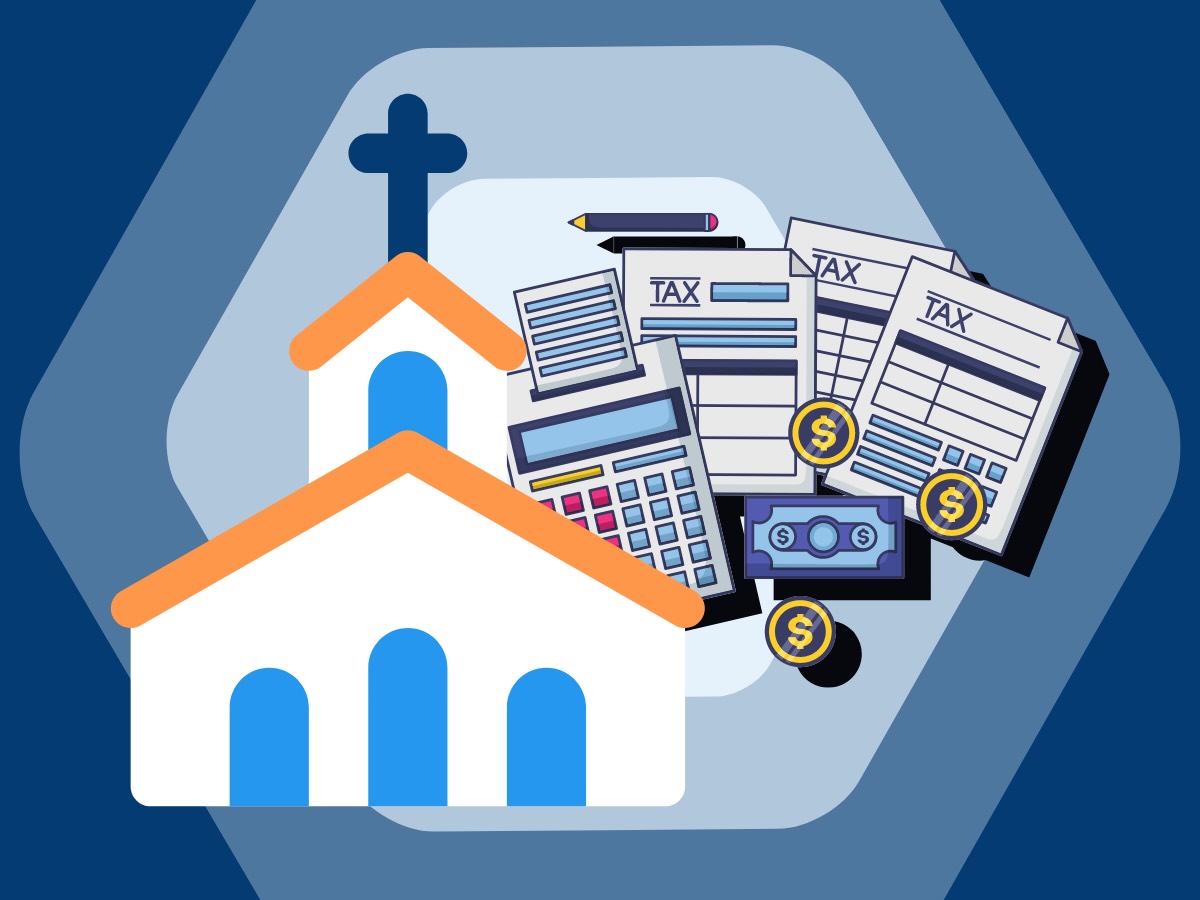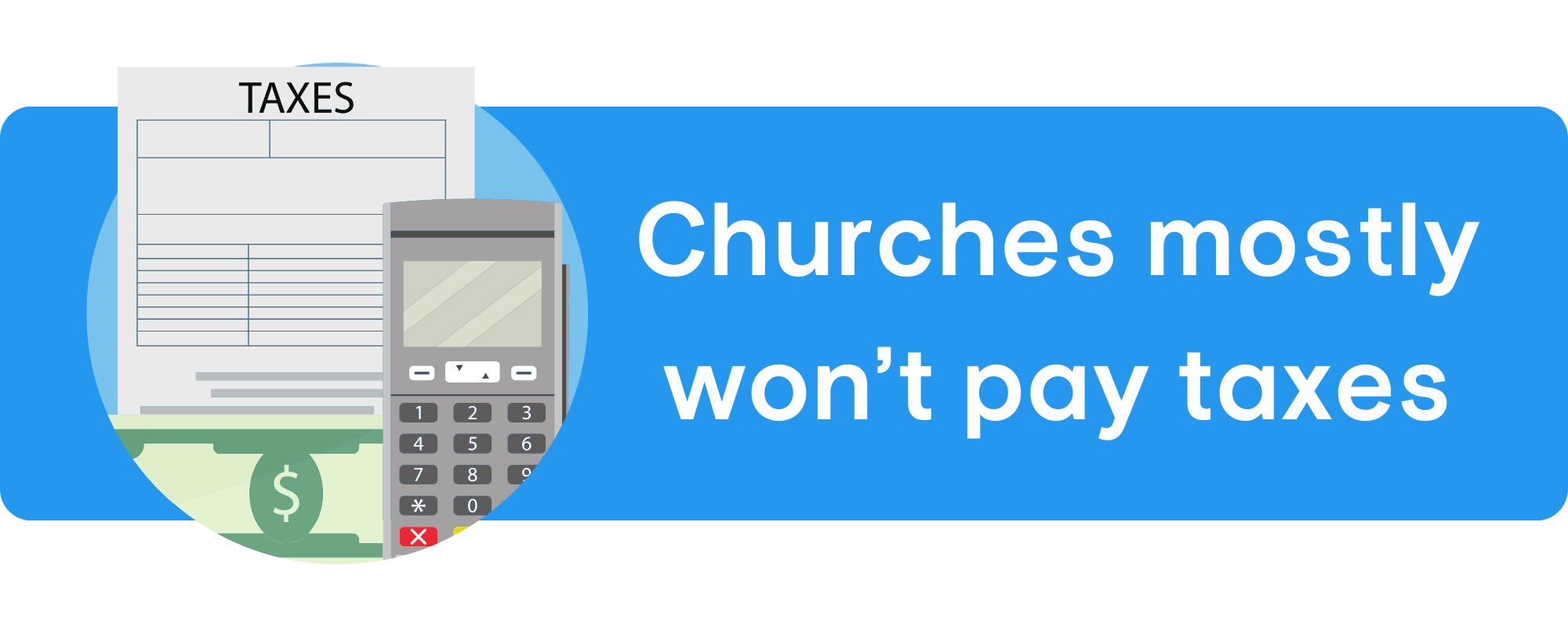Do Churches Pay Taxes? Sometimes...

Yes.
Wait, hold on! Don't leave just yet. There are a few important nuances to churches and taxes that we need to cover before you can go on your merry way.
Like all nonprofit organizations, churches are generally exempt from federal income tax under section 501(c)(3) of the Internal Revenue Code. However, this exemption doesn't mean your church will never pay taxes. Let's explore further...
When Do Churches Pay Taxes?
The IRS provides churches favorable treatment by not requiring them to pay taxes a majority of the time.
However, there are a few specific instances where your church will pay taxes...

Income Tax for Churches
Churches are exempt from federal income tax on revenue generated from activities related to their mission (e.g., donations, fundraisers for charitable causes, etc).
However, they may still be liable for taxes on unrelated business income (UBI).
If a church engages in activities outside its core religious or charitable mission, generating income from sources such as retail or rental properties, that income will probably be subject to taxation.
Church Property Tax
Property tax exemption for churches varies by state and locality. In most jurisdictions, churches enjoy exemptions on property used exclusively for religious, educational, or charitable purposes.
However, if a church owns property that is not primarily used for these purposes, such as rental properties or commercial buildings, those properties may be subject to property taxes.
What About Sales Tax?
Sales tax exemption for churches also varies by state.
While most states exempt churches from paying sales tax on purchases made for religious, educational, or charitable activities, purchases made for activities unrelated to their missional purpose may be subject to sales tax.

What Do Churches Pay Taxes For?
Here are the 6 most common reasons a church has to pay taxes:
- Unrelated Business Income (UBI): If a church engages in activities unrelated to its religious purposes, any income generated from these activities may be subject to unrelated business income tax (UBIT). This includes operating a bookstore, renting out space for commercial purposes, or running a business unrelated to the church's mission
- Property not used for religious purposes: While many states provide property tax exemptions for churches, properties owned by a church that are not exclusively used for religious, educational, or charitable purposes may be subject to property taxes. For instance, if a church owns rental properties or vacant land that is not being used for its tax-exempt purposes, those properties may be taxable
- Merchandise sales: If a church sells merchandise (books, CDs, hats, shirts, etc) not directly related to its religious or charitable activities, the income generated from these sales may be subject to sales tax
- Unrelated investments: Income from investments or endowments not directly related to the church's exempt purposes may be subject to taxation. For example, if a church invests in stocks, bonds, or other securities and earns dividends or capital gains from those investments, such income may be subject to taxation
- Employee taxes: Churches with paid staff members are typically required to withhold and pay employment taxes, including Social Security and Medicare taxes, as well as federal and state income taxes on behalf of their employees
- Failure to comply with reporting requirements: Failure to comply with tax reporting requirements, such as filing annual information returns (e.g., Form 990), could result in penalties or loss of tax-exempt status, leading to potential tax liabilities

Tax Exempt Status Doesn't Mean You're Always Tax Free
While your church enjoys tax-exempt status from the Internal Revenue Service, that doesn't mean you will never pay taxes. Understanding these nuances is crucial for church leaders to ensure compliance with tax laws and maintain transparency for their organization.
So do churches pay taxes? Sometimes! Consult a tax professional, preferably one familiar with non-profits, before making any plans.
But as long as your church stays on mission, you'll have less to worry about.
Disclaimer: Tax laws are complex and subject to change, which can have varying impacts on different organizations. ChurchTrac provides the above information for general guidance only and is not a substitute for professional advice. We highly recommend consulting with a tax professional or legal counsel to address your specific needs. ChurchTrac assumes no liability for actions taken in reliance upon the information contained herein.

|
Matt
|